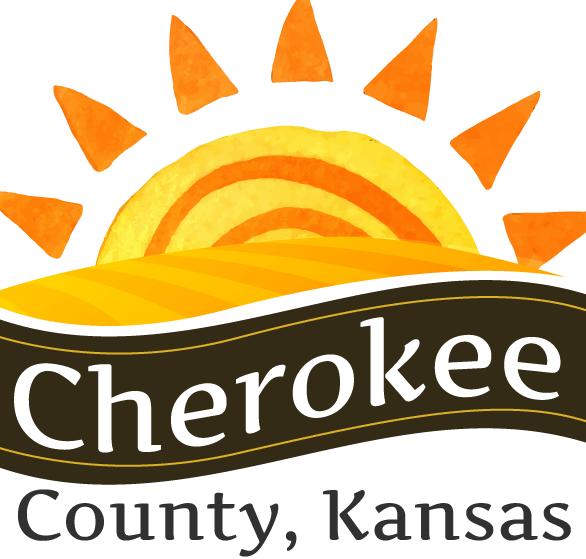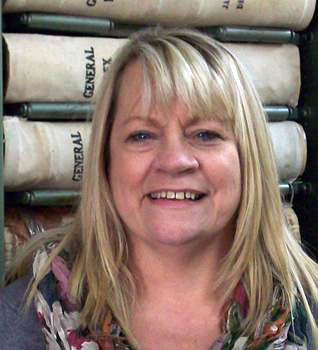-
What is the register of deeds office?
The Register of Deeds office is where all transactions pertaining to real estate (land) including certain types of liens and mortgages are recorded and maintained so that the public is made aware of their existence. This office also records financing statements and security agreements under the Uniform Commercial Code (UCC).
-
What is a deed?
A deed is an instrument by which a buyer obtains title to the piece of property being sold. A deed comes in many forms. The most common source of passing title is called a warranty deed. The seller warrants that he has a good and clear title and guarantees that his predecessors have no interest in the title. There is also a quit claim deed. This is used to obtain are lease from a person who is believed to have some interest or claim to the property. By this form of deed the grantor "quits" any claim he might have to the property.
-
What if I lose my deed?
The primary evidence of ownership of land is not so much the deed itself as the recording of the deed. Once recorded the original deed is returned to the new owner who usually places the deed in a safe place along with other important papers. If your deed is lost or misplaced, a copy may be obtained from the Register of Deeds office and certified with an official stamp. The copy may then be kept among the buyer's personal records. There is a fee for the copy and the certification.
-
Does a deed have to be recorded?
Although there is no time limit on recording deeds, a deed should be recorded as promptly after the transaction as possible. Failure to record a deed could render the transfer or mortgaging of the property impossible and create numerous legal difficulties.
-
What is a lien?
Many times the owner of property may owe money to various creditors. The lien allows creditors a means of preventing the property from either being sold or mortgaged until the debt is paid. Some of the types of liens recorded in the Register of Deeds are: Tax Liens (for non-payment of taxes), and Mechanic Liens (such as repair or work done on a vehicle) are filed in the UCC area of the Register of Deeds office. Mechanic Liens for labor and materials furnished in construction on land are filed in the Clerk of the District Court's office. State sales and state income tax liens are also filed in the Clerk of the District Court's office.
-
What happens to a document when it is brought to the register of deeds office?
There are a number of steps that are taken when a document is brought or mailed in to be recorded before the original document is mailed back to the concerned party. The document is first evaluated for obvious errors and record ability and the correct fee is ascertained. We do require a 3" margin at the top of the first page and 1" at the bottom of each page. Beginning indexing information is entered to create a receipt, fees are collected and a barcode is generated that provides a document/film-page number, this unique number is applied to all pages of the document. Then the document is scanned and the remaining indexing information is entered into the computer. Upon completion of the indexing information the document is verified to ensure that the information entered matches the information on the image.
Please be advised that State Statutes prevent us from accepting any document before 8:00 a.m. and after 5:00 p.m.
-
What do you mean by "indexes"?
An index is the system by which a document can be located after recording. The Register of Deeds office has different mechanisms to retrieve indexed information. Document number, Grantor, Grantee, Legal Description, Film/Page number. All of these indexes can be accessed on any computer.
-
How long will it take for a deed or other document to be returned?
Upon completion of the scanning, indexing, and verification of the document the documents are sorted and returned to the respective party. This process normally takes 2-3 business days.
-
How do I find the deed to my house?
The Register of Deeds office has a section referred to as the Grantor and Grantee Index. Grantor means the seller and Grantee means the buyer. Any property obtained prior to April 1, 1988, will not be on the computer system. Once you ascertain the date your property was purchased your name can be located in the Grantee book. Once you locate your name in the Grantee book it will reference a Book or Film and Page number. The names are arranged alphabetically under the date the property was purchased. Each book covers approximately a six-month period. If the date is after April 1,1988, the film or book/page and document number can be located in the computer indexes by the legal description and/or your name. The image is viewable for these documents along with the indexed information. The following documents are not viewable; death certificates, UCC’s and documents with social security numbers.
-
What if I don't recall when the house was purchased? How do I find the deed?
If you cannot remember the date when the house was purchased you can call the Real Estate Records located in the County Clerk's office (429-9500 x5), and ask for the last transfer date, and they can tell you the last transfer date from the address or legal description of the property. Then you can proceed to locate the name contained in the Grantee book that has the proper date or locate the name contained in the computer Grantee Indexes.
-
Can I locate the mortgage on my house in the Register of Deeds office?
Yes. The mortgage is usually filed after the deed. Hence, the book or film and page reference on the mortgage follows the book or film and page reference of the deed. If it is not there, you will have to determine the approximate date that the mortgage was given. Once you have determined this, if the date is before April 1, 1988, you can locate the book containing that date in the Grantor Index section. The Grantor Index book will give you the book or film and page numbers where you can locate your mortgage.
-
Who do I talk to in the Register of Deeds office about matters of this sort?
The office staff will be more than happy to answer any questions you may have. It is better if you can personally visit the office but we also answer questions by email, fax, mail, or phone. Since there are certain kinds of questions that can be answered only by an attorney or an Abstract and Title Company, it would not be feasible to have this information given to you by one who is not an attorney or an Abstract and Title Company employee. Basically, the Register of Deeds office is a recording agency only, and therefore, the information it gives out is limited to that which is contained in the records.
The office is open to the general public during the hours of 8:00 a.m. to 5:00 p.m. Monday through Friday, excluding State and National holidays. The Register of Deeds office phone number is 620-429-9500 x8 Fax 620-429-1362.
-
May I make out my own deed?
Yes, you can, but the Register of Deeds and staff always recommends the retention of an attorney or title company. The Register of Deeds office is a recording agency and therefore cannot make out deeds or answer those questions which pertain to legal matters.
-
Can you record property in the Cherokee County Register of Deeds Office if the property in not in this county?
No. The property or part of the property has to be located in Cherokee County.
-
Can the register of deeds office tell you if you have a good and clear title?
No.
-
What other kinds of records would I find in the register of deeds office?
Besides deeds, mortgages and liens, there are oil and gas leases, plats of additions to the cities in Cherokee County, honorable discharges from the armed services, powers of attorney, and corporate records.
-
How far back do the records go?
The earliest records in the Register of Deeds office, written in elaborate manuscript, date back to the 1860 Among the early records are the Patent Deeds recorded when land was bought from the United States government that are signed by President Ulysses S. Grant.
-
What is Uniform Commercial Code (UCC)?
Uniform Commercial Code, more commonly known as UCC, became effective in Kansas in 1966. As the name implies, it was a code that was developed for uniform filings on personal and real estate property throughout the USA. Like all "uniform" attempts, fees and other things are different, but the basic concepts of security regulations are more uniform. The filing of a UCC Financing statement is what perfects or secures the loan on consumer goods, personal and real estate property. UCC filings are indexed by debtors and secured parties.
July 1, 2001, the Kansas law concerning UCC filings changed. Financing statements covering consumer goods, and personal property are filed in the office of the Secretary of State in Topeka, KS. Financing statements covering fixtures, timber to be cut, and as-extracted oil, gas and other minerals that contain real estate are filed with the Register of Deeds in the county where the land is located.
-
Who is the Register of Deeds?
The Register of Deeds is an elected official for a four-year term who makes certain that the documents are recorded properly according to the laws of the state and maintains and preserves those records. The current Register of Deeds is Barbara Bilke.
-
Where is the Register of Deeds office located?
The office is located in the Cherokee County Court House at 110 W Maple, Columbus, Ks.


